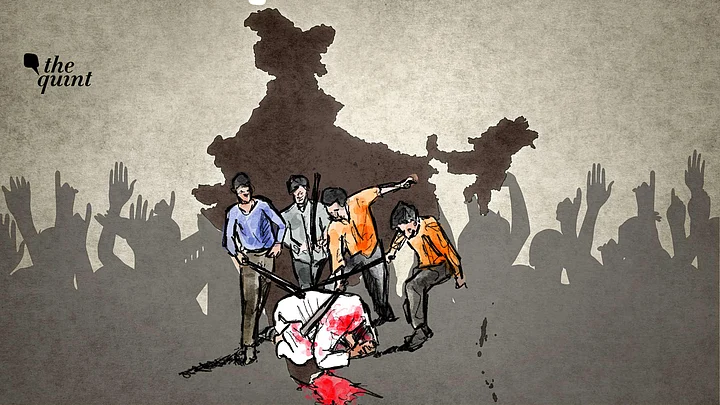The UN General Assembly adopted a resolution on Tuesday to proclaim 15 March as the International Day to Combat Islamophobia. The 193-member UN General Assembly adopted the resolution, which was introduced by the Organisation of Islamic Cooperation (OIC) and co-sponsored by Afghanistan, Bangladesh, China, Egypt, Indonesia, Iran, Iraq, Jordan, Kazakhstan, Kuwait, Kyrgyzstan, Lebanon, Libya, Malaysia, the Maldives, Mali, Pakistan, Qatar, Saudi Arabia, Turkey, Turkmenistan, Uganda, the United Arab Emirates, Uzbekistan and Yemen.
India’s Permanent Representative to the UN, Ambassador T S Tirumurti, expressed concern over phobia against one religion being elevated to the level of an international day, and said, "In fact, there is clear evidence that over decades, such religio-phobias have, in fact, affected the followers of non-Abrahamic religions as well.
This has contributed to the emergence of contemporary forms of religiophobia, especially anti-Hindu, anti-Buddhist and anti-Sikh phobias," he said.
India's 'Right-Wing Extremism' Is Terrorism, Too
While his statement seems innocuous, when read along with a statement from January at the keynote address at a virtual conference organised by the Delhi-based Global Counter-Terrorism Centre (GCTC), it’s concerning. In addition to calling for recognising Hinduphobia, he said that the United Nation’s Global Counter-Terrorism strategy passed last year is full of flaws, and that terms like “violent nationalism” and “right-wing extremism” must not be included in resolutions on terrorism as they would “dilute” them.
As we see a rise in Hindutva organisations, such as the Bajrang Dal, resorting to violence, is it not necessary that “right-wing extremism” be included in the definition of terrorism?
“India is proud that pluralism is at the core of our existence and we firmly believe in equal protection and promotion of all religions and faith. It is, therefore, unfortunate that the word ‘pluralism’ finds no mention in the resolution and the sponsors have not found it fit to take on board our amendments to include the word “pluralism” in the text for reasons best known to them,” Ambassador Tirumurti said in his Explanation of Vote at the UN General Assembly.
The Irony of Hijab Row Amid 'Pluralism'
It is ironic that the resolution was passed by the UN General Assembly on the same day the Karnataka High Court ruled that hijab won’t be allowed in educational institutions.
Ambassador Tirumurti said, “Hinduism has more than 1.2 billion followers, Buddhism more than 535 million and Sikhism more than 30 million spread out around the world. It is time that we acknowledged the prevalence of religiophobia, rather than single out just one. We hope that the resolution adopted today [Tuesday] does not set a precedent, which will lead to multiple resolutions on phobias based on selective religions and divide the United Nations into religious camps. It is important that the United Nations remains above such religious matters which may seek to divide us rather than bring us together on one platform of peace and harmony and treat the world as one family,” he said.
'Not Convinced,' Says India
Following the adoption of the draft resolution, Ambassador Tirumurti said that while India condemns all acts motivated by antisemitism, Christianophobia or Islamophobia, such phobias are not restricted to Abrahamic religions only. He noted that the member states should not forget that in 2019, 22 August had already been proclaimed as the International Day commemorating the victims of acts of violence based on religion or belief, which is fully inclusive in nature.
“We even have an International Day of Tolerance observed on 16 November. We are not convinced that we need to elevate phobia against one religion to the level of an international day,” he said.
“It is in this context that we are concerned about elevating the phobia against one religion to the level of an international day, to the exclusion of all the others. Celebration of a religion is one thing but to commemorate the combating of hatred against one religion is quite another. In fact, this resolution may well end up downplaying the seriousness of phobias against all other religions,” Ambassador Tirumurti said in his statement after the adoption of the resolution. “We are not convinced that we need to elevate phobia against one religion to the level of an international day,” he added.
Protecting 'Good Terrorists'
In a climate where Hindutva groups heckle and abuse hijab-wearing students, indulge in acts of violence against the Muslim minority, such as during the recent Delhi riots, harass Muslim vendors on the streets, can we really downplay Islamophobia in India and say that we uphold “pluralism”?
In addition, what can be the logic behind Ambassador Tirumurti seeking to exclude “right-wing extremism” by groups like Bajrang Dal from resolutions on terrorism? Or are we to watch helplessly as the state uses its resources in the international fora to protect their “good terrorists”.
(Aveek Sen is a computational journalist studying disinformation, fake news, hate posts online at hateswatteam.com. Previously he wrote on cybersecurity and the geopolitics of India’s neighborhood, focusing on Pakistan, Afghanistan, Iran, and Bangladesh. This is an opinion article and the views expressed are the author's own. The Quint neither endorses nor is responsible for them.)
(At The Quint, we question everything. Play an active role in shaping our journalism by becoming a member today.)
